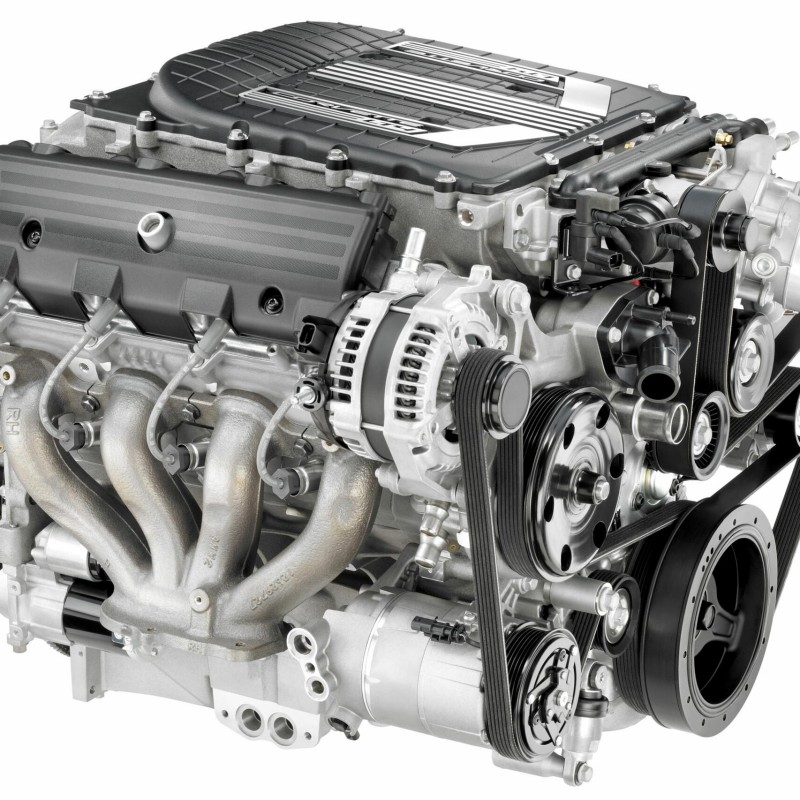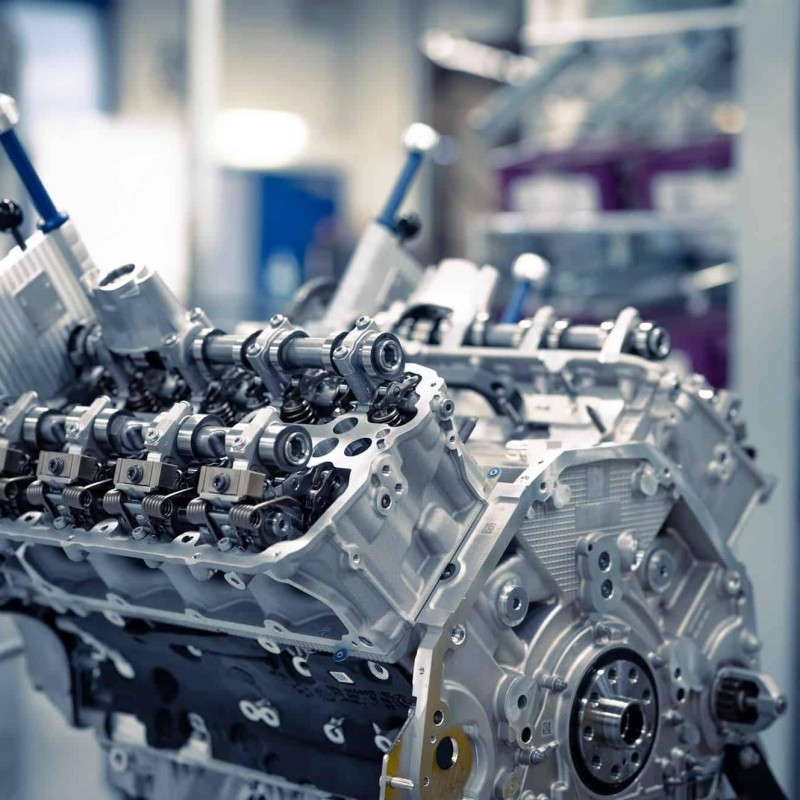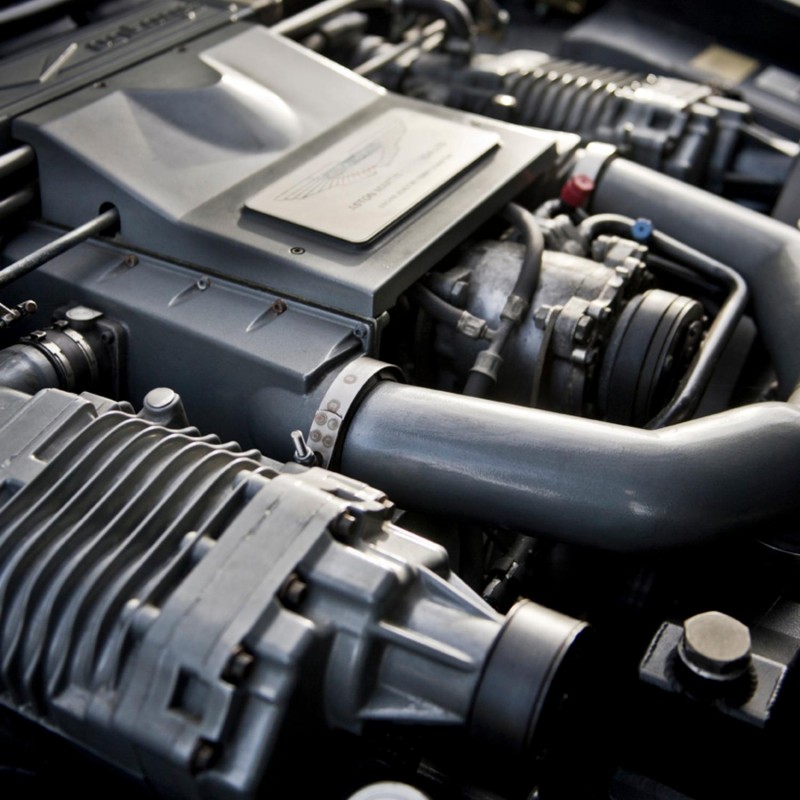In the world of automotive engineering, the V8 engine holds a special place. Revered for its power and performance, it has become synonymous with high-performance vehicles and a staple in muscle cars. However, a fascinating subset of V8s exists: the small V8 engine. These engines combine the characteristic V8 configuration with compact design, efficiency, and impressive power delivery. The smallest V8 engine showcases a remarkable engineering achievement, designed not only to fit within space constraints but also to perform exceptionally well. In this article, we will delve into the smallest V8 engine’s specifications, its applications in various vehicles, historical context, benefits over larger engines, and the technological advancements that made this compact powerhouse possible.

Understanding the V8 Engine Configuration
Before we dive into specifics about the smallest V8 engine, it’s essential to understand the fundamental design and operational mechanics that define a V8 configuration.
What is a V8 Engine?
A V8 engine consists of eight cylinders arranged in a V configuration, sharing a common crankshaft. This configuration contributes to the engine’s balance and allows for smooth power delivery.
Engine Characteristics
V8 engines typically produce high horsepower and torque, making them ideal for performance-oriented vehicles. Moreover, the V shape allows for a more compact design compared to inline engines with similar displacement, leading to greater performance in a smaller space.
Common Applications of V8 Engines
From muscle cars and sports cars to trucks and SUVs, V8 engines find applications across various segments. They are particularly favored in high-performance models owing to their ability to generate substantial power.
The Smallest V8 Engine: Specifications and Innovations
Within the broader category of V8 engines, certain models stand out for their compact design. Understanding the specifications of the smallest V8 engine highlights the engineering ingenuity behind it.
Defining the Size
The title of the smallest V8 engine often goes to the 2.2-liter V8 engine developed for various applications, including automotive and marine use. This engine compresses the performance attributes of a traditional V8 into a remarkably compact design.
Key Specifications
- Displacement: Usually around 2.2 liters to 3.0 liters
- Power Output: Despite its small size, it can produce between 100 to 250 horsepower, depending on tuning and application.
- Torque: Smaller V8 engines can generate significant torque, often in the range of 150-300 lb-ft.
- Weight: Due to its compact size, this engine often weighs less than traditional V8 engines, contributing to better weight distribution and overall vehicle dynamics.
Notable Models Featuring Small V8 Engines
Many manufacturers have incorporated small V8 engines into their vehicle lineups, taking advantage of the benefits associated with this compact powerhouse. Some notable examples:
- Chevrolet: The LS series includes small block V8 engines known for their durability and performance.
- Ford: The EcoBoost range features smaller V8 engines designed for efficiency without sacrificing power.
The Evolution of Small V8 Engines
The development and refinement of small V8 engines reflect significant advancements in automotive engineering. Understanding this evolution offers insight into how manufacturers have adapted to changing needs and preferences.
Early Developments
Small V8 engines emerged in the mid-20th century as automotive manufacturers began to seek ways to enhance fuel efficiency without losing the performance characteristics expected of a V8. Engineers focused on reducing size while streamlining power accumulation.
Technological Advancements
Innovations such as high-pressure fuel injection, turbocharging, and improved engine management systems have significantly impacted the evolution of small V8 engines. These technologies have enabled manufacturers to produce engines that are not only compact but also capable of competitive performance.
Impact on Performance Vehicles
The integration of small V8 engines into performance vehicles has reshaped the landscape of racing and sports cars. By providing an ideal balance of weight and power, these engines facilitate superior handling and acceleration, elevating the driving experience.
Advantages of Small V8 Engines
Opting for a small V8 engine carries several advantages for both manufacturers and consumers. Understanding these benefits can influence prospective buyers’ decisions regarding vehicle purchases and modifications.
Weight Efficiency
One significant advantage of small V8 engines is their reduced weight. This lightweight construction can lead to improved vehicle dynamics, allowing for better handling, acceleration, and braking.

Enhanced Fuel Economy
Small V8 engines often provide improved fuel efficiency over their larger counterparts. Advanced technologies enable these engines to produce more power while consuming less fuel, appealing to environmentally conscious consumers.
Versatile Performance
Small V8 engines deliver a unique blend of performance characteristics. They can yield substantial horsepower and torque, making them suitable for various driving conditions, from daily commutes to spirited driving and towing.
Emissions Compliance
As emissions regulations continue to tighten, manufacturers focus on producing engines that meet or exceed environmental standards. Smaller engines often have a more favorable emissions profile, benefiting from efficient combustion technologies.
Maintenance Considerations for Small V8 Engines
Maintaining a small V8 engine requires attention to detail to ensure it functions optimally throughout its lifecycle. Following best practices will keep engines running smoothly.
Regular Oil Changes
Frequent oil changes remain crucial for any engine type, especially for smaller V8 engines. Ensuring the right oil viscosity is used contributes to proper lubrication and helps reduce engine wear over time.
Inspecting Air Filters
Regularly check and replace air filters to promote optimal airflow to the engine. Clean air filters enhance engine performance and prevent unnecessary strain on engine components.
Fuel System Maintenance
Maintaining a clean and efficient fuel system is vital for smaller V8 engines. Using high-quality fuel and periodically cleaning fuel injectors can improve combustion efficiency and overall engine health.
Monitoring Fluids
Regularly inspect all engine fluids, including coolant, transmission fluid, and brake fluid levels. Keeping these fluids at their appropriate levels prevents overheating and ensures safe operation of the vehicle.
Professional Servicing
Consider having a professional conduct periodic inspections of your small V8 engine. Certified mechanics possess the expertise to identify potential issues before they escalate, ensuring longevity and performance.
Applications and Performances of Small V8 Engines
The versatility of small V8 engines enables them to thrive in various applications. Understanding these applications highlights their adaptability and performance benefits across different automotive segments.
Sports Cars
Many sports cars utilize small V8 engines to strike a balance between power and agility. These engines contribute to lighter chassis designs and help deliver exhilarating performance on the road and track.
- Examples: The Ford Mustang EcoBoost models and Chevrolet Camaro often feature smaller V8 configurations, leading to impressive horsepower and acceleration.
Trucks and SUVs
Light-duty trucks and SUVs benefit from small V8 engines to provide both efficiency and towing capacity. Manufacturers aim to create versatile vehicles that excel in various driving conditions without sacrificing the driving experience.
- Examples: Models like the Chevrolet Silverado and Ford F-150 offer small V8 engine options that enhance performance while remaining practical for everyday use.
Performance Boats
Beyond automobiles, small V8 engines have found a place in the marine industry, powering performance boats with their compact size and impressive power outputs. These engines contribute to agility and acceleration, making them ideal for recreational activities.
- Applications: Many manufacturers design specific marine versions of small V8 engines to withstand the demands of watercraft while delivering superior performance.
Racing
In racing, the small V8 engine can shine through its efficiency and power-to-weight ratio. Racing teams often adopt advanced designs to optimize small V8s for competitive events, making them formidable on-track contenders.
- Value in Racing: With advancements in tuning and technology, teams can often push the limits of small V8 engines, achieving remarkable results.
Innovations Driving the Future of Small V8 Engines
As the automotive landscape continues to evolve, innovations driving small V8 engines offer exciting prospects for the future of performance and efficiency.
Advances in Turbocharging
Turbocharging technology significantly enhances the power output of smaller engines. Increasing air intake density allows small V8s to compete with larger engines, providing remarkable performance without additional weight.
Hybrid and Electric Integrations
Emerging technologies, including hybrid and electric powertrains, pose future possibilities for small V8 engines. Manufacturers are exploring options to integrate electric motors with V8 configurations for enhanced fuel efficiency and performance.
Smart Technology
With the rise of smart technology within vehicles, small V8 engines may benefit from real-time diagnostics, improving maintenance and performance tracking. Systems like onboard computers monitor engine health, alerting drivers of potential issues.
Fuel Efficiency Improvements
Continued research into materials and compositions seeks to refine fuel efficiency, contributing to lower fuel consumption across small V8 engines. Manufacturers are also exploring innovative fuel blends that enhance compatibility with smaller engines.

Conclusion
The small v8 engine stands as a testament to the ingenuity of automotive engineering. By combining power, efficiency, and compactness, these engines have transformed the automotive landscape, paving the way for impressive performance across various applications. From sports cars to trucks and racing, small V8 engines deliver the horsepower and torque needed for competitive driving and everyday practicality.
Understanding the intricacies of small V8 engines allows consumers to recognize their value in performance vehicles and daily drivers. By adhering to proper maintenance practices, drivers can maximize the lifespan and efficiency of their engines.
As we look toward the future, the continued evolution of technology, the integration of hybrid systems, and innovations in fuel efficiency promise to enhance the capabilities of small V8 engines further. With their versatility and performance, these engines will undoubtedly remain essential to the automotive industry’s dynamic fabric.
Tags: automotive performance, engine technology, smallest v8 engine